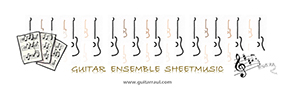The thesis is divided into two parts. Part One charts the rise in popularity of the guitar in early-nineteenth-century Europe, shown to have its origins in mid-eighteenth France and the advent of the style galant. It examines critically the guitar’s place in the musical life of the time, its repertory and performance, and the role it played in Romanticism. The ideological reasons why the instrument faced derision and exclusion from bourgeois institutions such as music journals and musical academies are also investigated here.
Part Two takes the form of a case-study centred on guitar activity in Bristol and Bath in the early nineteenth century. The two cities act as a microcosm of the greater guitar world and serve to contextualize issues and problems examined in Part One. Two guitarists in particular, the Italian Giuseppe Anelli (c. 1787-1865) and the German Karl Eulenstein (1802-1890), served the local community for almost twenty years apiece and their contribution as performers, teachers and entrepreneurs is evaluated, as is the contribution of touring guitarists. Part Two concludes with an examination of the unique relationship between leading guitarists of the period – Anelli, Eulenstein, Leonhard Schulz and Trinitario Huerta – and the Bristol School of Artists, several of whom were keen amateur players. Their convivial activities are examined against the wider backdrop of European Romanticism. Key paintings of the Bristol School which feature the guitar are also discussed.
Andrew Britton
uk.bl.ethos.528890
The guitar in the romantic period
http://ethos.bl.uk/





